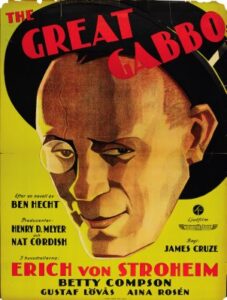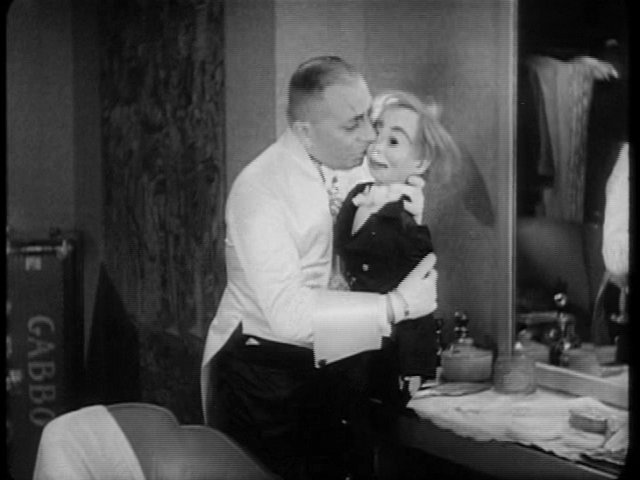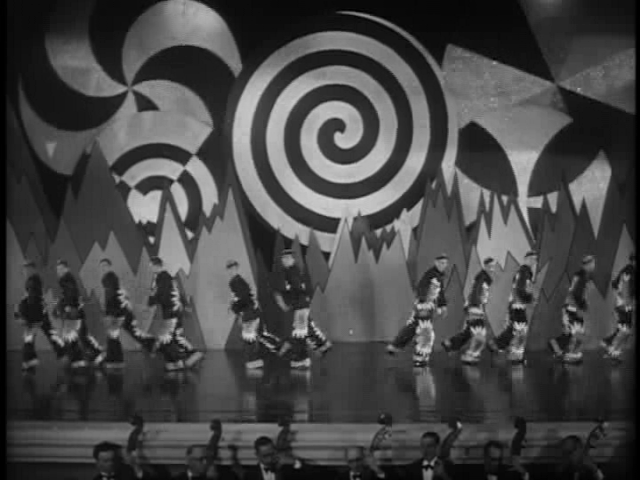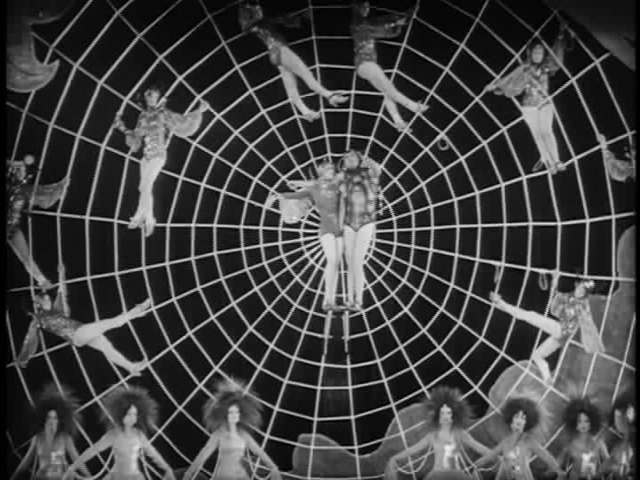|
Genres, Themes, Actors, and Directors:
- Erich von Stroheim Films
- Mental Breakdown
- Puppets and Ventriloquism
- Vaudeville and Burlesque
Review:
This early “transitional talkie” — based on a story by Ben Hecht, and starring Erich von Stroheim in his first acting role after the end of his directing career — is a disappointing enigma. Despite its intriguing premise, the movie is utterly undone by deathly slow pacing, an underdeveloped plot, and countless extraneous musical revue numbers thrown in to pad the film’s running time. Gabbo’s performances with Otto are neither amusing nor remotely realistic, yet — in perhaps the most surreal aspect of the entire movie — Gabbo is supposed to be a world-class entertainer (?!). Far too much is made of the fact that Otto is somehow able to “talk” while Gabbo is eating, drinking, and smoking (we’re shown this “trick” no less than three times); in fact, we think there must be either fraud or something fantastical going on, but again, neither of these hints are ever explored.
Meanwhile, Von Stroheim — never the most nuanced of actors — is both heavy-handed and insufferably heartless as Gabbo: the insults he hurls at poor Compson in the opening ten minutes of the film are enough to make you want to throttle him, and he never (re)gains our sympathy. In fact, the entire screenplay is premised on Compson’s enduring pity for Gabbo, yet we can’t help thinking she’s nuts to give him the time of day. The creepy promise of Gabbo’s descent into ventriloquial madness isn’t adequately exploited until the very end of the picture, at which point it’s too little, too late. At least there are occasional moments of surreal hilarity scattered throughout the film — as when Otto sings a song about preferring lemon drops to lollipops because the latter get “all over icky”. Indeed.
Redeeming Qualities and Moments:
Must See?
No, though most film fanatics will likely be morbidly curious to check it out. See “The Ventriloquist’s Dummy” segment in Dead of Night (1945) instead for a truly creepy story about an obsessed ventriloquist.
Links:
|





One thought on “Great Gabbo, The (1929)”
First viewing. Not a must – not even for the sake of cinema history.
This is one unfortunate work on every level.
How…in a restaurant…can the dummy entertain when Gabbo is…nowhere…near him? Oh, right…because Gabbo is Great! And, again, on-stage…he’s nowhere near the dummy, and – Oh, right…because he’s Great! What was anybody thinking???
Granted, the ‘Caught in the Web of Love’ number is…um, reasonably insane – tho, for the full effect, it should be moreso.
Bad script/acting/directing…oy! Dumb.